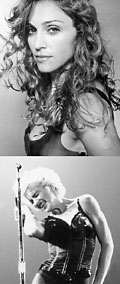IF EVER THERE WAS an antihero, it’s Ram Karan. The corpulent, 48-year-old protagonist of Akhil Sharma’s An Obedient Father works for the physical education department of the Delhi school system, collecting bribes for his boss, who in turn hands the money over to India’s Congress Party. Karan lives in a squalid flat with his widowed daughter, Anita, whom he molested years ago, and his granddaughter, Asha, whom he almost molests in the course of the novel. Political and personal events soon turn Karan’s world into turmoil: Not long after the assassination of the soon-to-be Prime Minister Rajiv Gandhi, Anita—emotionally unstable and suspicious of her father’s clandestine visits with Asha—tells her extended family that Karan raped her.
Sharma’s debut has its flaws: Overwritten, weighed down with political discourse, and containing too many miniclimaxes, An Obedient Father verges on the unwieldy. Ironically, the novel’s saving grace comes from Sharma’s ability to create such an (im)morally complex character as Karan. The protagonist reflects on molesting his daughter: “How could I be accountable for the way she interpreted what I was doing? There was not that much difference between what I did and a father who makes his children sing before guests at a party.” From Karan’s betraying friends to sleeping with a child prostitute, Sharma tests readers as to how far they’ll follow the protagonist before passing judgment upon him.
AN OBEDIENT FATHER
by Akhil Sharma (Farrar, Straus & Giroux, $23)
BRIBES, LIES, and vengeful acts abound in Sharma’s novel, in which no one can claim innocence, including Anita, and the only declaration of “I love you” is made to gain self-confidence. Likewise, Sharma’s India is a wretched land. Having moved to America, Anita’s sister, Kusum, visits her native country with her husband, Ben, and their daughter, Carolyn. Nightmarishly, “Badly maimed cows were everywhere. . . . [The family] passed a calf that had one of its hooves pulped, so that a leg ended in a long dark flap of skin. The calf was hobbling toward a pile of garbage in such stunned fly-specked misery that Ben picked up Carolyn to keep her from the vision.”
An Obedient Father doesn’t shield its readers from such images, and rather than balance out negative with positive, or suffering with hope, the book leaves it up to the reader to provide any kind of moral framework. Beyond gritty realism, however, the novel’s true accomplishment is how such a starkly unreligious work can invoke the words, “Let he who is without sin cast the first stone.”







